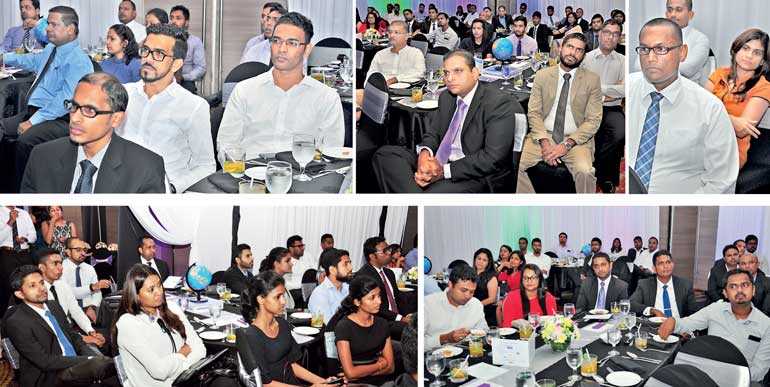Thursday Feb 19, 2026
Thursday Feb 19, 2026
Thursday, 5 July 2018 00:00 - - {{hitsCtrl.values.hits}}


By Charumini de Silva
Top experts recently called on the policy makers to intervene to manage the exorbitant construction costs in Sri Lanka, to ensure availability of affordable housing for the people.
“Sri Lanka’s construction costs are extremely high, it is higher than most of the countries in the Asian region. As a result, the middle income earners find it difficult in obtaining a property within the city limits. The affordability of apartments are not in the price of land, but it is driven a lot by the construction cost,” Overseas Reality Plc Director and Group CEO Pravir Samarasinghe said addressing at a panel discussion organised by the CFA Society Sri Lanka on Tuesday.
He pointed out that the construction costs in India, Thailand, Vietnam, Indonesia and Malaysia were much lower than Sri Lanka, insisting that this is where one day the policy makers must look at ways to intervene that to manage the construction cost to ensure there is availability of housing for the people.
According to Samarasinghe 40% of the developers’ construction costs includes imported material, while also being subject to various duties, CESS, PAL and NBT which then gets accumulated to the final price of the property. He said that the local building materials are also reasonably expensive like sand, noting there is shortage at present.
“If you assume the CIF price of steel, which is needed for construction is Rs. 100, when you clear it out of the Colombo port it is Rs. 230 and that’s the extent of cost of steel. In India they build it at Rs. 100 steel price and in Sri Lanka we have to pay Rs. 230 for the same steel. Likewise, cement, tiles and all other building materials there is enough of tariffs involved,” he stressed.
He noted the depreciation of Sri Lankan Rupee also as a negative effect of the exorbitant import costs that the economy had to deal with over a period of time.
Samarasinghe also charged that local labour and contractors are highly inefficient.
“Our local contractors keep 25% of margins for overheads and profits, whereas in India they keep only 10%. Sri Lankan consultant architects keep 6% of margins, while in India their architects retain only 2% as their fees. So, all these accumulates into our cost of construction being exorbitant high,” he pointed out.
Development Strategies and International Trade Ministry Advisor Anushka Wijesinha also reiterated that it was high time that the policy makers take some tough decisions in resolving the issue of high construction cost.
“We really need to figure out whether we want the interest of a few to compromise the interest of the many. I think we have to take some tough decisions on tariff reforms. It is not an easy task as it is politically very unpopular, but I think it is time given all the buildings that’s happening to get serious about it,” he added.
Wijesinha also suggested that Sri Lanka’s banking industry needs to come up with some innovative financial instruments, particularly for housing loans to make housing more affordable for the middle-class.
“I think the banks need to come up with better cost of funds and instruments such as mortgage credits and mortgage intermediaries particularly for housing loans. We seem to do it on a better scale for the SMEs with refinancing schemes from international donors or Central Bank and the same way we need innovative solutions for the housing loan schemes as well,” he stated.
Wijesinha also recommended that Sri Lanka should learn and adapt from projects like Berlin City in terms of making best use of the abundant State-owned land, noting that the Government should do away with giving those lands for people who are willing to pay the highest value to the Treasury.
“It is time that we look at the broader picture of making use of these State-owned lands. We must not only give these lands to the best price, but we need the private sector companies that will make the best projects that are needed in that space for the best of the community,” he added.
John Keells Holdings Sector Head Property Group Nayana Mawilmada said the Government need to address some of these policy issues and tax issues immediately.
“The solution is not Government building the houses, the market can perfectly take care of it – but these policy issues and tax issues needs immediate attention,” he stressed.
Pix by Sameera Wijesinghe